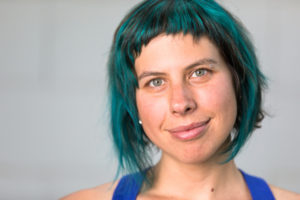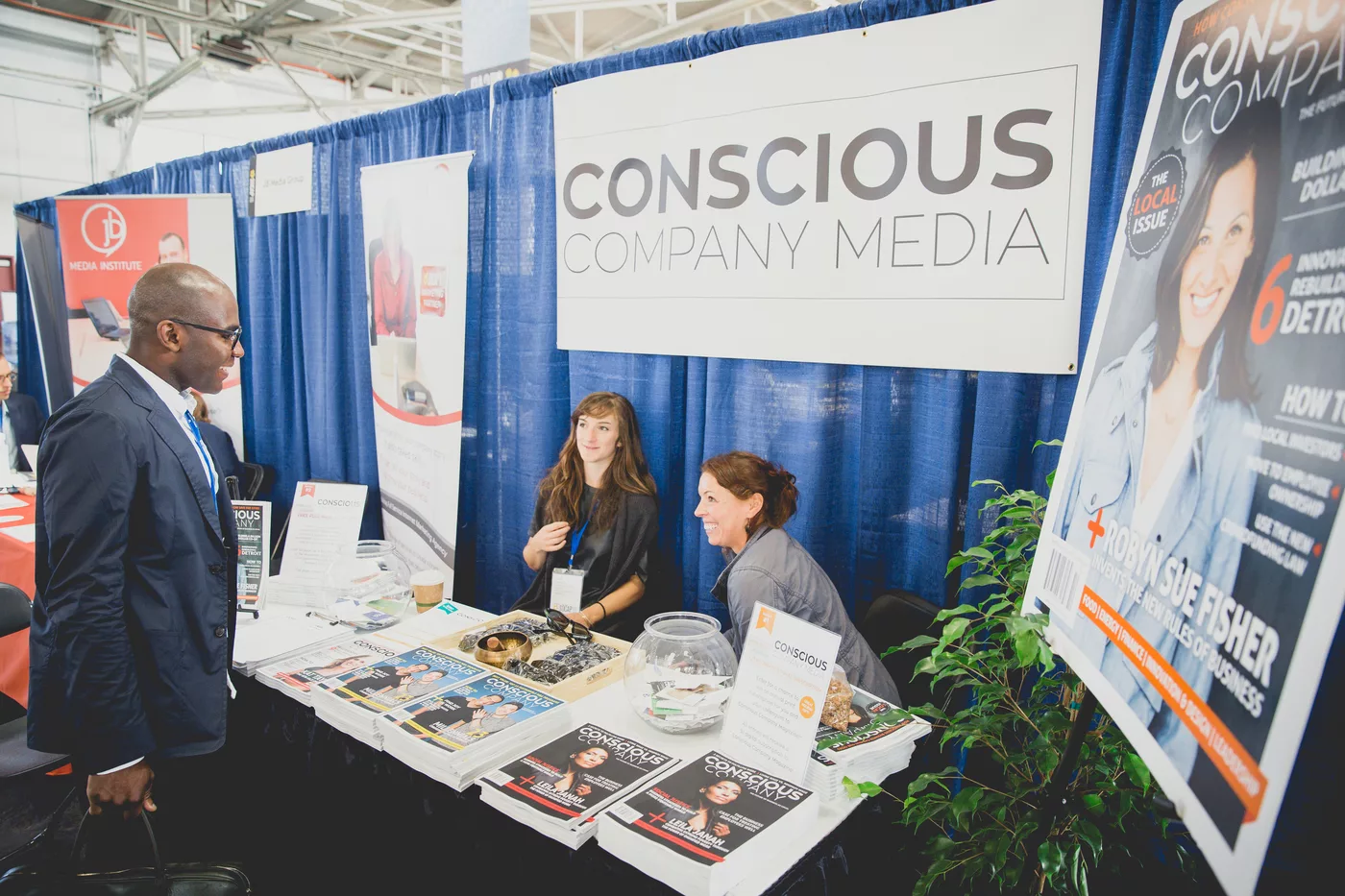A SOCAP Guest Post By Rachel Zurer, Editorial Director of Conscious Company

As we prepare to convene in San Francisco for SOCAP17 we asked several of our media partners to share a few of their most timely and important news stories with the SOCAP community. This week’s suggested reading comes from Conscious Company.
Whatever theme you’re focusing on this year, these in-depth interviews, calls to action, and how-to articles from Conscious Company will get you inspired and up-to-speed.
10 Great Ways You Can Source Local Capital
Why it’s worth a read: Whether you’re an entrepreneur seeking funding or looking for creative ways to deploy assets locally, these ideas from Big Path Capital and Jones Day cover the full spectrum of options for keeping money in your community.
Related SOCAP17 Themes: Neighborhood Economics, Impact Investing
Key passage: “Just as with, say, buying local produce or supporting local businesses, sourcing local capital … has many benefits. It creates a more connected capital relationship between the investor and the company, helps promote a vibrant local economy, leads to a more dynamic community featuring a higher quality of life as more dollars are circulated within it, and results in a place where more of us would like to live.”
Patagonia’s CEO says Conscious Leaders Need to Stand for Something
Why it’s worth a read: Patagonia Inc. might be the world’s best example of a successful conscious company. Since its founding in 1973, the privately owned outdoor apparel maker has been a pioneer in treating its employees well, caring for the environment, and making a profit while doing good. In this exclusive in-depth interview, president and CEO Rose Marcario shares her best advice for companies and CEOs on taking risks, trusting your gut, and creating the change you want to see.
Related SOCAP17 Theme: Meaning
Key passage: “If you don’t stand for something, you don’t stand for anything. As many punches as I’ve taken about all kinds of stands I’ve taken publicly, I would do it again in a minute. It’s the right thing to do. At the end of the day, you want to live your life having done what you believe is the right thing to do, and not having taken some generic stance or the safe route. That’s just boring and ineffective.”
The Trump Effect: 7 Trends Driving Growth in Sustainable Investing
Why it’s worth a read: Betsy Moszeter of Green Alpha Advisors lays down her wisdom about how investors can use their public equity investments to drive progress toward a more sustainable, equitable economy in the age of Trump.
Related SOCAP17 Themes: Climate Change, Impact Investing
Key passage: “Though the Trump Administration pledges allegiance to coal, natural gas, and oil, basic economics points to a decline in fossil fuels. Put simply, renewable-based power generation is becoming too cheap for fossil fuels to compete. Solar module production costs have fallen 80% since 2008, and solar power can be generated for as little as 2.42 cents per kilowatt-hour—half the price of coal-based electricity generation. The cost savings edge that tech-based energy generation (wind and solar) has over commodity-based energy (oil, coal and gas) will only grow in the future as modeling of solar PV generated electricity predicts a 59% cost decline by 2025.”
How Alfa Demmellash Is Betting on Local Business in a Big Way
Why it’s worth a read: After more than a decade running a thriving network of entrepreneurs helping their communities through her nonprofit Rising Tide Capital, Harvard-educated Alfa Demmellash understands the role of business in bringing people together and creating meaningful jobs. In our July/August cover interview, she shares her take on the biggest questions facing humanity today and what entrepreneurship has to do with answering them.
Related SOCAP17 Themes: Sustainable Livelihoods, Racial Equity
Key passage: “The reality is, we need…investors…to have a more nuanced view around what innovation actually is. We can only keep society stitched together when we have a sense of community and belonging that is fundamentally about our human wellbeing and our ability to solve any challenge, whether it’s environmental issues, whether it’s violence, or all of the things that we care about. We are at a moment where, over the next decade, we either solve our challenges and have deeply abundant communities that are sharing and valuing what matters most, or we’re going into significant darkness, with masses in unemployment, depression, war, and violence.”
BanQu: A High-Tech Solution to Extreme Poverty
Why it’s worth a read: After growing up in poverty in India, Ashish Gadnis founded and sold three successful tech companies before turning his attention to the problem of persistent poverty. His company, BanQu, has built a patent-pending app platform and network based on cutting-edge computing technology called blockchain to provide a portable, democratic economic identity to the world’s poorest people. He’s one of the few entrepreneurs straddling the divide between global humanitarian goals and the booming world of FinTech and blockchain.
Related SOCAP17 Themes: Beyond Aid: Achieving Development Goals
Key passage: “In the US, you can walk in with a utility bill, a driver’s license, or a pay stub and a financier will easily give you a loan or you can buy a car. In places like the Congo or Myanmar or Somalia, or for refugees on the move, none of that becomes part of your identity. People continue to stay poor because they’re not connected to a local, national, global supply chain.”
19 Social Entrepreneurs to Watch in 2017
Why it’s worth a read: We polled investors, incubators, accelerators, and industry groups to bring you this list of 19 exciting social entrepreneurs on the rise in 2017 — plus their inspirations, recommendations, and recent lessons.
Related SOCAP17 Themes: Impact Investing, Racial Equity, Meaningful Work, Climate Change
Key passage: “Starting in 2008, Natalia Oberti Noguera, founder and CEO of Pipeline Angels, built a network of female social entrepreneurs in New York from six early adopters to over 1,200 women. That network opened her eyes to how hard it was for many members to secure funding. ‘They were sharing their change-making ideas with their communities, people were getting excited, asking where to send the check … and as soon as they would clarify that they were aiming to be for-profit social ventures, people would back away, saying, “Let us know when you’ve launched your sister nonprofit,”’ Oberti Noguera says. ‘I realized that society has a gendered perception with respect to how people are changing the world.’”
It’s Time for Impact Investors to Rethink Risk
Why it’s worth a read: Katherine Pease, the principal of KP Advisors, shares key ideas from a paper she co-authored with Sarah L. Thomas, “In Pursuit of Deeper Impact: Mobilizing Capital for Social Equity” — a must-read for any progressive investor
Related SOCAP17 Themes: Impact Investing, Racial Equity
Key passage: “Investing that seeks to achieve socially equitable outcomes must disrupt the current risk/return paradigm that drives so much of the investment field, because strictly correlating risk with financial returns can undermine the purported goals of impact investing, which is also interested in social returns. To better support entrepreneurs and community groups seeking to achieve both social and financial returns, we need to structure investments differently.”




